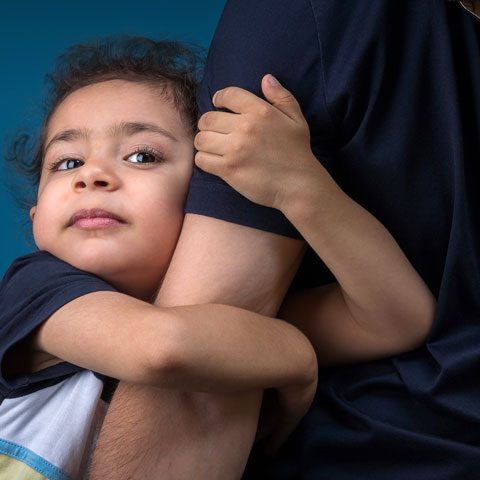Have you ever felt that people judge you, look at you differently, or comment on your parenting when your child starts screaming in the grocery store because they don’t know how to communicate their needs or because the noise is too overwhelming?
Have you ever felt that people always ask questions about your child’s disability that you don’t know how to answer, or try to say something nice but actually sound amazingly rude?
If you’ve ever been upset or felt like screaming “Are you serious?”, take a deep breath. These moments can be opportunities for you to educate other parents or advocate for yourself.
Here’s some advice to get you started:
1. “She looks so normal! If you hadn’t told me, I wouldn’t have known that she is disabled!”
Yes, this comment might make you feel angry and offended. But remember, many people don’t know how to use language that puts people first. When they used the word normal, they might think they’re trying to be kind by complimenting your child. You can use this as an opportunity to spread disability awareness by saying:
“Every child is different. They learn and do things in a different way. My child has a disability, but it doesn’t mean she is different than other children or that there is something wrong with her. It’s just like some people have to read with glasses, and some people don’t.
“That’s why I prefer to use person-first language. Disability is not a problem. Instead of defining a person by their disability or diagnosis, use language to emphasis the person first. For example, a child with a disability. This allows us to focus more on a person’s strengths. When you start using ‘person first,’ I believe it changes the way you view the world.”
2. “What is wrong with him? You need to discipline him more.” “You must let him do whatever he wants at home.”
This is another common hurtful comment. It can make you want to scream, “Stop judging us!” Again, take a deep breath and explain:
“Every child can have a public meltdown once in a while, and it’s not necessarily a sign of bad parenting. There’s nothing wrong with my child. He is just sensitive to lights and sounds, and I’m trying to find ways to help him calm down.”
3. “He’ll grow out of it.” “Is he able to go to school?”
Most parents don’t know your life’s journey, and they might not know anything about your child’s disability. You can share your personal story with them:
“My child will not grow out of her disability. Having a disability doesn’t stop my child from going to school, learning, or making friends. I can tell you more about my child’s disability if you’d like to know more.”

